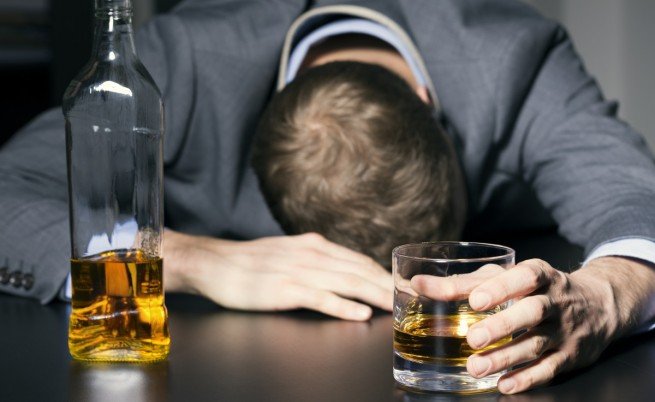Getting depressed is more easier than you think. Hello! Please don’t get me wrong, I am definitely not encouraging people to get depressed nor am I promoting depression in our society, that would make me a psychopath — of which I’m not. Rather, I am enumerating these salient points so that it could be avoided in order not to fall prey to depression.

That said, it is totally normal to feel depressed sometimes, for it’s part of what makes us human. Therefore, depression may be out of our control; you didn’t make your boss fire you nor are you the reason why you lost someone you loved to the cold hands of death, it just happened, and according to natural phenomenon our body response to stressful events or a loss of a loved one is: depression or grief.
However, our actions can also lead to depression. In recent times, over 300 million persons suffer globally from depression, and a significant amount of that figure are self induced. In addition, more than 800 thousand persons that die each year take their own life due to depression. Hence, it is imperial to state these contributing or inducing factors that could lead to depression so that they can be avoided, thus preventing depression.
The 8 easy ways to get depressed are;
1. Abuse Alcohol

I am picking this first because this is one of the easiest ways to depression, probably the easiest because alcohol is not illegal and being drunk isn’t either, as far as you’re not going to drive you know. In the United States alone, more than 79 thousand deaths are caused by excessive alcohol use each year.
There is a common saying: “Drink to drown your sorrows.” But does drinking actually drown your sorrows? Well, maybe for a while but in the long run you would be the one drowning in sorrow. It’s not like alcohol is bad or something. In reality, your body needs a reasonable amount of alcohol to function properly and a little wine once in a while can be soothing to the soul.
On the other hand, heavy alcohol intake can be detrimental to your health and could lead to serious medical complications. For starters, it can damage you liver, an essential organ critical for survival. Remember we do not yet live in a world where you can just go see a doctor and swap your damaged liver for a new one like it’s an iPhone upgrade. Certainly not! And I also do not think damaging your liver with heavy alcohol intake would solve any problem, but aggravate your depression.
Heavy alcohol intake increases the levels of Gamma Aminobutyric Acid (GABA) in the brain, which thereby inhibits the release of an excitatory neurotransmitter called glutamate. The release of glutamate is responsible for an increase in brain activity and energy levels, when the release of this neurotransmitter is inhibited this result to a complete body slow down. When combined with benzodiazopenes; this can slow your heart rate and respiratory system down to hazardous levels.
Heavy alcohol intake can also increase the release of dopamine, this is actually responsible for the good sensations you feel while taking alcohol. It feels like it is the alcohol that is making you feel excited when actually it induces the release of dopamine in the “reward center” of your brain. Normally, the reward center of our brain is responsible for the pleasure we get from engaging in fun activities. Now, you don’t need to engage in any activity to feel this good, alcohol can induce it, hence leading to the consumption of more alcohol.
Nevertheless, the sad truth is that we have limited amount of dopamine. And the more it is triggered to release, the lower the levels of dopamine we have and the higher the amount of alcohol we need to take to attain satisfaction, thus leading to alcohol addiction. It can get so bad to the point of exhausting the amount of dopamine we have to nonexistent, but at this stage the drinker is already addicted. This changes our brain chemistry, thereby enhancing depression.
2. Smoke till Your Fingers Burn

Smoking and depression have a strong connection. Although it is a chicken and egg situation: People who are depressed are more likely to take up the habit. Excessive smoking could lead to severely damaged lungs amongst other clinical complications.
Like alcohol, nicotine is known to induce the release of certain neurotransmitters in the brain. Which would lead to higher levels of serotonin and dopamine.
Antidepressant drugs also possess this attributes and this could explain the addictive nature of the drugs, the resultant effect of mood swings due to withdrawal, together with why hard-core smokers experience depression and withdrawal symptoms due to smoking cessation. In order to balance the chemistry in the brain it is advisable to avoid cigarettes.
3. Don’t Sleep Much

One study discovered that when healthy participants weren't allowed to sleep properly, their brain activity was greater than the well rested participants after viewing upsetting images. One of the study authors noted that the reaction of depressed patients were similar to the sleep deprived participants.
"If you don't sleep, you don't have time to replenish [brain cells], the brain stops functioning well, and one of the many factors that could lead to is depression," says Matthew Edlund, MD, director of the Center for Circadian Medicine, in Sarasota, Fla., and author of The Power of Rest .
It is not surprising that sleep deprivation can result to irritability, and can further increase the risk of depression.
4. Overuse the Internet

A number of studies now suggest that spending too much time in chat rooms and on social media websites can be associated with depression, particularly in teenagers and pre-teenagers.
Being an internet addict may make it difficult to interact with humans in real life, thereby leading to a lack of companionship, for such indulgence could trigger an unrealistic view of the world. Some have termed this to be "Facebook depression."
One research conducted in 2010, discovered that over 1.2% of people ages 16 to 51 spent an immoderate amount of time online, and that these ones had a greater chance of moderate to severe depression. That being said, according the researchers the major dilemma of this research was that it wasn't clear if it is the social media overload that caused people to become depressed or an overuse of the Internet is just one symptom of depression.
5. Don’t Eat Fish

Omega-3 fatty acids which is found in salmon and vegetable oils are recognised to regulate neurotransmitters like serotonin, thus creating a balance in the brain’s chemicals. However, a low amount of this fatty acid could increase the risk of depression.
A Finnish study found an interesting relationship between eating less fish and depression in women, though not in men. The link is quite explainable. Therefore, fish oil supplements could be used as a substitute; at least one research discovered that this is helpful to people suffering from depression as a result of bipolar disorder.
6. Try Owing a Huge Debt

Well, I’m a victim of this one and I wouldn’t advice anyone to try it, unless you really want to be depressed, I probably still won’t advice you though. On that note, it was a really horror experience, when the payment was almost due I had to work my ass out to payback. Please don’t get me wrong, when I said ass I didn’t mean it literally.
It got to a point that every message alert and phone call seemed like the creditor demanding a payback. After summoning some courage to check my phone, I found how wrong my assumption was. I’m not a debtor and I’m not used to borrowing money, so this made it even worse. Therefore, my advice is that you shouldn’t borrow a sum that you know you can’t payback easily, better still, to be on the safer side don’t borrow in the first place.
7. Wallow in Self Pity and Criticism

Expelling all your energy criticizing yourself and never give yourself a break. That is one fast lane to depression and unhappiness. It is no news that being a perfectionist, unimpressed, and dissatisfied with all that you do and making your standards impossible to achieve would only lead to depression.
It is okay to fall, not standing back to your feet is where the problem lies. So whenever you fail, anticipate possible ways you could have averted it, learn from it and move on. It is not wrong to look back at what you have achieved, this could boost your confidence that success is attainable with perseverance. Keep in mind that there’s no limit to perfection, therefore, seeking perfection is unrealistic. So whenever you are developing goals, make sure they are realisable.
8. Repress Your Anger

Anger is very bad, and good people should never get angry. Well, if you say so, bravo! You've boarded the train to 'destination depression.' There is a reason I saved this for the last, but it is obviously not the least.
Studies have shown that repressed anger is VERY unhealthy for any one, for it can be manifested in subtle ways and its results are catastrophic, as it can lead to chronic stress or depression, thus putting a strain on the immune system and leading to an unhappy life. One common subtle way to repress anger is through passive anger behaviours, which involves putting less effort at work, recurrently being argumentative and difficult or making sarcastic and harsh remarks, arriving late and improperly dressed to places.
Another way repressed anger is being expressed is redirecting it towards one's self and this usually causes individuals to ruin their relationships and deliberately destroy their own careers, or punish themselves with self harming behaviours such as eating disorders and sleep deprivation. This self-directed anger is one common reason for low self-esteem and of depression. Some let the unthoughtful remarks of others to get to them, in response feeling they are useless and unwanted.
Storing the anger you feel inside is not the best, talking to someone about it can be helpful; maybe a trusted friend or a professional — psychologist. It's okay to shout, it's okay to scream, it's okay to let it out, but don't get too carried away.
References
Thanks Asa for this, I guess you missed mine. I felt really depressed some days ago, after finding out things I laboured myself for months for didn't come out as expected. It gets really annoying, like I just wasted those months for nothing.
What keeps me going is knowing the fact that everything in life is temporary, all problems are temporary, even the imperfect life itself is temporary. A friend and a brother D. H. Splane was my source of encouragement.
Now you make me wish I had written this earlier. Anyway, disappointments are never endearing. I can feel the pain in your words, really sorry about it. You've got a good friend and brother, please never harbour such anger, feel free to discuss it with someone you trust.
I have learnt a lot from this, especially the ill effect of repressing anger.